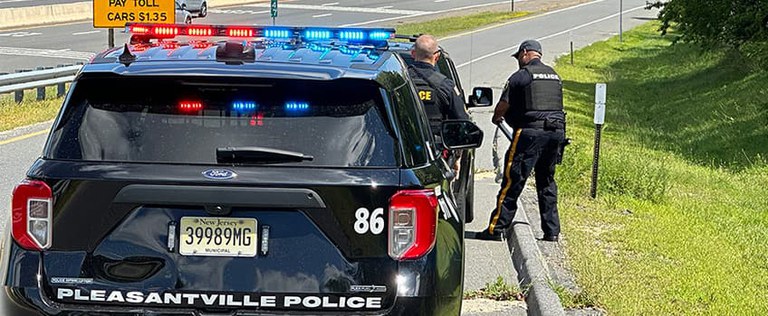Traffic stop project improves public trust in police (Stockton University)
Shift into Safe News
Nearly 85% of all police-initiated interactions with citizens occur during a traffic stop — by far the most common way the public encounters law enforcement.
A group of researchers, led by Stockton University professors and students, believe enhancing this method of contact may improve the relationship between the police and the community. Recent tragic incidents during traffic stops, including the death of Tyre Nichols by the Memphis Police Department in 2023 and the death of George Floyd in 2020 at the hands of a Minneapolis police officer, have led to trust in police dipping to its lowest level since 1993, according to a recent Gallup Survey.
“Current police training is suggesting that officers keep interactions short when making traffic stops. Just keep it short and let the driver go,” said Nusret Sahin, Stockton assistant professor of Criminal Justice. “I think we challenge this in a good way because our findings show that when officers spend more time it has very positive impacts from the citizens’ perspective.”
Sahin is the lead investigator on the project titled Enhancing Procedural-Justness of Encounters Through Substantiation (EPJETS). He’s joined on the research team by co-principal investigators Manish Madan, associate professor of Criminal Justice at Stockton; Joel Caplan, professor at the Rutgers School of Criminal Justice; and Rob Voigt, assistant professor of Linguistics at Northwestern University.
The group announced their findings at a news conference on June 10 at Stockton’s Atlantic City campus, including how the protocol:
- Increased public trust in law enforcement and enhanced cooperation with police.
- Increased the level of support for traffic enforcement and enhanced the legitimacy of the traffic stops.
- Altered the perceptions of police professionalism related to the use of body-worn cameras.

The project is funded by a $702,956 grant from the U.S. Department of Justice. The research team conducted the project with the Atlantic City and Pleasantville police departments from October 2022 to June 2024. During that time, 1,423 drivers were stopped for speeding — 752 were part of the control group where officers gave citizens a standard short interaction, and 671 drivers were in the experimental group with the new protocol. In that group, the drivers were given the following by police:
- A procedural justice-oriented script rooted in a message of dignity, respect, neutrality and fairness.
- A pamphlet, researched and designed by Stockton students using risk-terrain modeling, that detailed the areas of the cities that had the most traffic accidents.
- A survey given by Stockton students about the motorists’ thoughts on the new protocol.
- Access to body camera footage from the police officer so the drivers could go back about a week later and watch the interaction.
Providing the body camera footage allowed citizens to see how they interacted with the police and gave them the peace of mind that the traffic stop was being recorded and could be seen by the officer’s supervisor, Sahin said.
“Citizens are concerned during traffic stops. It’s a very stressful moment for some people,” he said. “We are alleviating that stress. The officers are just telling people, ‘This is for your safety.’ If you want a professional police service, if you want to enhance trust between police and the citizens, then our protocol offers a simple and easy way to do that.”
Atlantic City Police Chief James Sarkos said he was extremely proud and enthusiastic for his department’s participation in the research, and specifically how it involved procedural justice.
Access the Stockton University article about the Traffic Stop Project to learn more.
